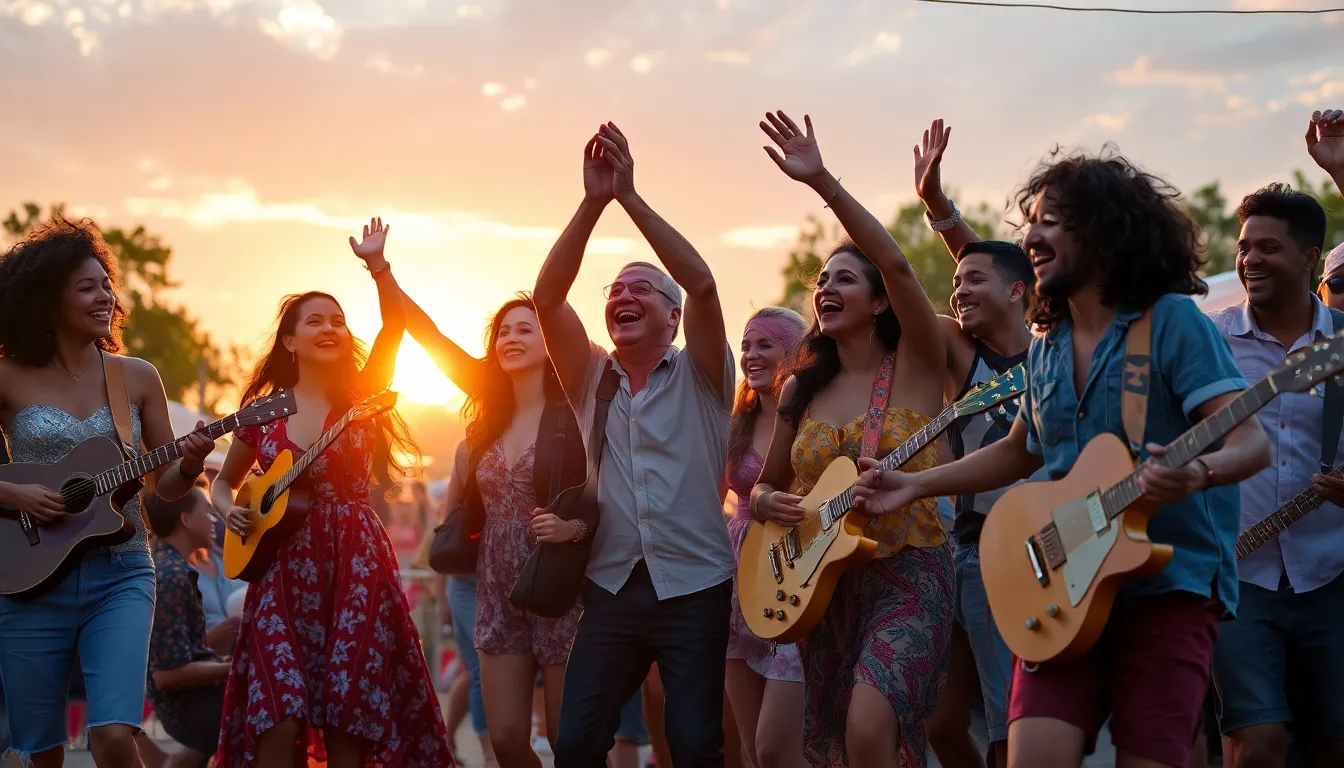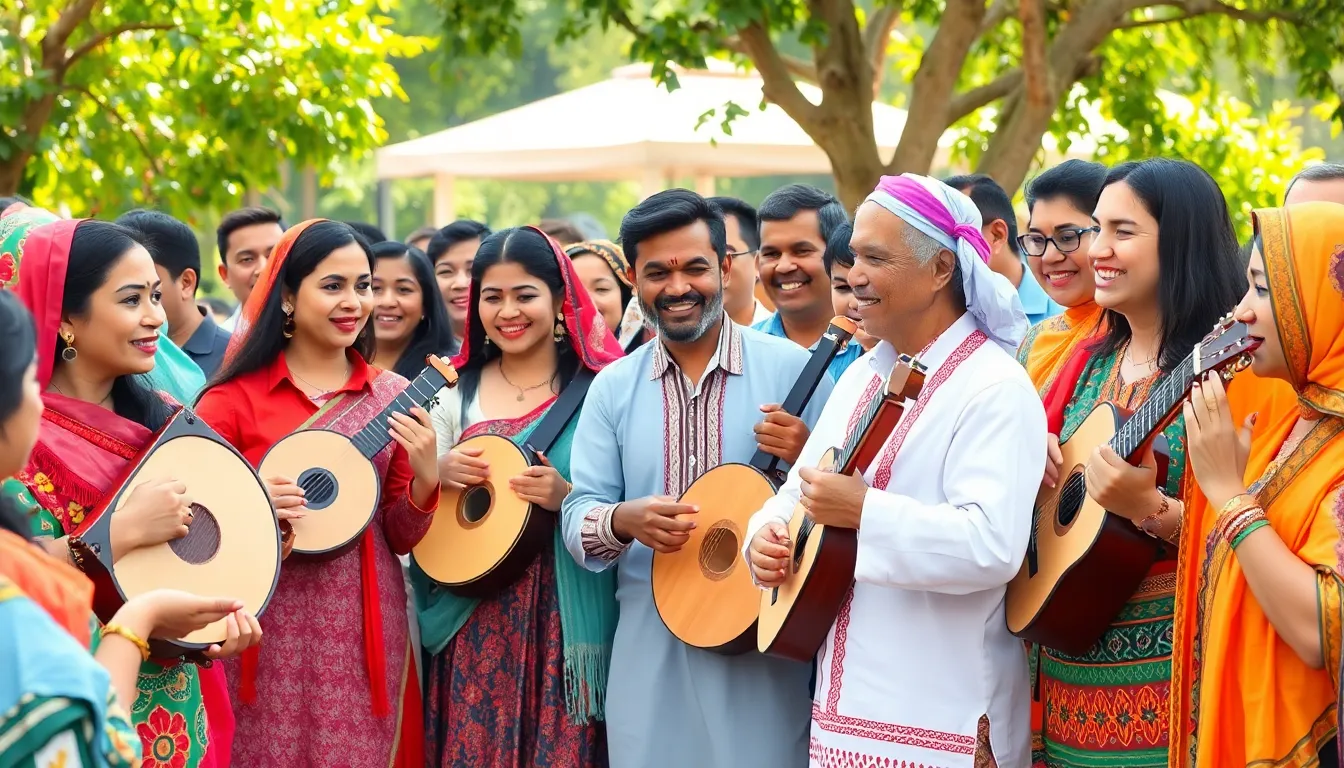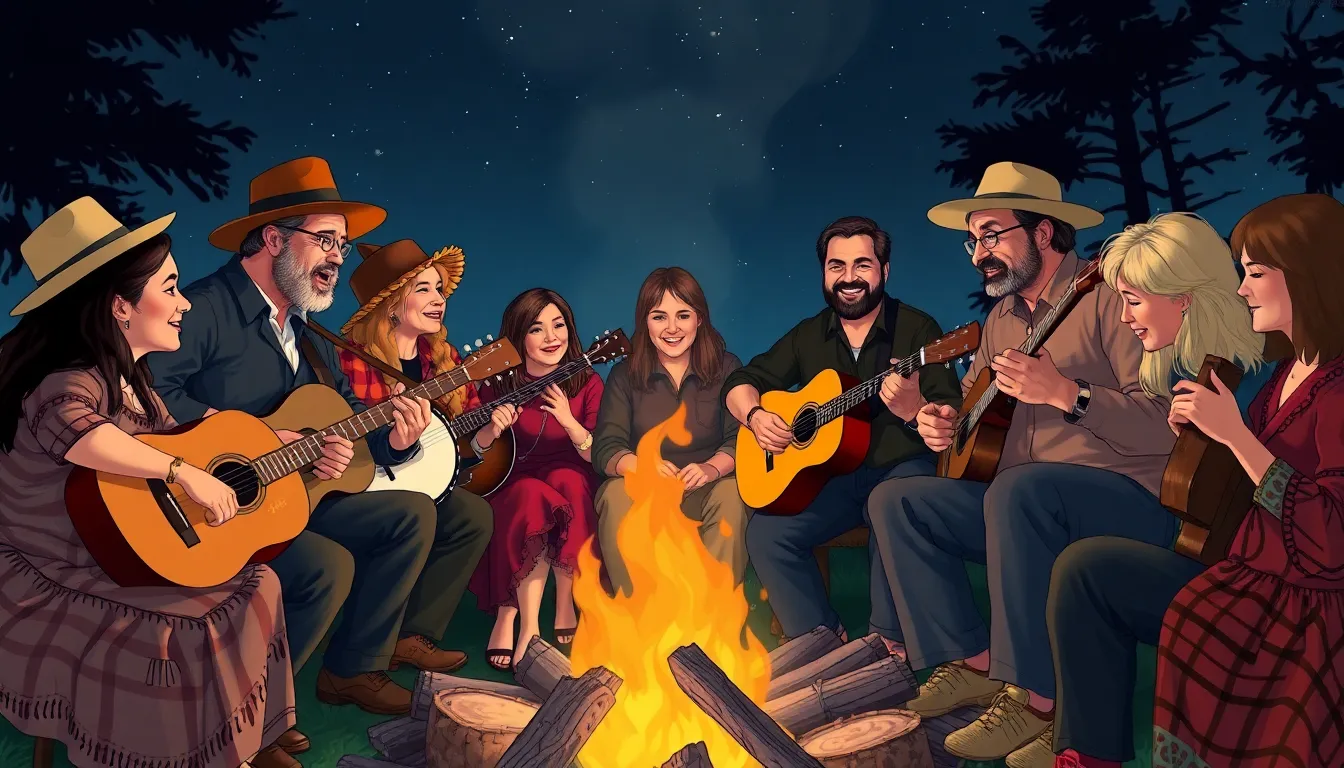Physical Address
304 North Cardinal St.
Dorchester Center, MA 02124
Physical Address
304 North Cardinal St.
Dorchester Center, MA 02124

Music isn’t just background noise; it’s the heartbeat of culture. It weaves through the fabric of society, shaping identities and connecting people in ways words often can’t. Imagine a world without those catchy tunes that get stuck in your head or the soulful ballads that make you feel all the feels. That’s like a pizza without cheese—just not right!
Music plays a vital role in shaping cultural identities. It exists as a primary form of expression, conveying emotions, stories, and traditions unique to different communities. Cultural events often feature music prominently, enhancing rituals and celebrations.
Traditions are passed down through generations via music, preserving heritage. Songs and melodies encapsulate historical events and societal values, reinforcing a sense of belonging. Communities bond through shared musical experiences, fostering stronger social ties.
Diversity in music reflects cultural variety, enabling cross-cultural interactions. Different genres emerge from unique cultural backgrounds, promoting understanding and appreciation among various groups. Collaboration among artists from diverse cultures results in new musical forms, enriching global culture.
Music influences social change by giving voice to movements. It rallies individuals around shared causes, motivating action and raising awareness. Throughout history, songs have inspired revolutions, making music a powerful tool for societal impact.
As a means of communication, music transcends language barriers. Rhythm and melody evoke feelings universally, allowing people to connect beyond words. This intrinsic ability to unite enhances its significance in various cultural contexts.
Music enriches culture through emotional connection, preservation of traditions, and promotion of social cohesion. Different cultural contexts give rise to unique musical expressions, demonstrating the integral role music plays in shaping human experience.


Music’s historical significance is evident across cultures and eras. It serves as a reflection of social values and collective identities.
Ancient societies utilized music in various forms for communication and celebration. Many civilizations, including the Egyptians and Greeks, integrated music into daily life, using it in rituals and public gatherings. Instruments such as lyres and flutes played essential roles in these communities. Evidence suggests music accompanied storytelling, thereby preserving historical narratives. Apart from entertainment, music fostered social cohesion, uniting people during communal events. As a result, the roots of musical traditions can be traced back to these early practices, highlighting music’s integral role in forming cultural identities.
Religious practices around the world frequently incorporate music as a means of worship. Sacred hymns, chants, and instrumental pieces enhance the spiritual experience. Many traditions, such as Gregorian chants in Christianity or bhajans in Hinduism, showcase the deep connection between faith and musical expression. Music serves to elevate the communal atmosphere during ceremonies and rituals, creating a sense of belonging among congregants. Through music, followers convey their beliefs, emotions, and aspirations, illustrating its vital role in spiritual life. These historical usages underscore music’s enduring influence on cultural traditions and practices.
Music serves as a powerful medium for personal and cultural expression. It shapes identities and enables individuals to convey complex emotions.
Music reflects personal identity and plays a crucial role in defining one’s sense of self. Individuals express emotions, experiences, and cultural backgrounds through song choices and participation in musical genres. For instance, genres like hip-hop often address themes of resilience and social struggles, resonating with those who share similar experiences. Unique sounds or lyrics can evoke a sense of pride, belonging, and individuality. This connection between music and identity fosters emotional depth and authenticity, allowing individuals to navigate their personal journeys through sound.
Music acts as an anthem for social movements, rallying people around shared causes. Songs like “Strange Fruit” and “Fight the Power” epitomize activism and highlight social injustices. Artists often use their platforms for advocacy, amplifying voices that demand change. Protests frequently incorporate music to unify participants, creating a shared emotional experience. The collective nature of singing together enhances solidarity and motivates action. As a result, music becomes a catalyst for social transformation, inspiring communities to fight for equality and justice through its powerful and poignant messages.
Music plays a vital role in uniting communities, creating bonds that strengthen social ties.
Music festivals and cultural events bring people together, showcasing diverse musical styles and fostering community spirit. These gatherings promote interaction among individuals from varied backgrounds, encouraging understanding and appreciation of different cultures. Celebrations such as Coachella and Mardi Gras demonstrate how music enhances the joy of communal experiences. Local festivals often feature regional artists, highlighting unique musical traditions. Participating in these events allows attendees to celebrate shared values while enjoying lively performances. The atmosphere generated by live music cultivates friendships and connections, reinforcing community identity.
Collaborative musical projects unite artists and community members, leading to rich cultural exchanges. Local initiatives like workshops and songwriting sessions invite participation, incorporating voices from various backgrounds. These efforts promote creativity and cultural diversity, allowing individuals to express their unique stories through music. Successful collaborations exemplified by works like “We Are the World” illustrate how music can address social issues, raising awareness on important topics. Such projects empower communities to come together, foster unity, and engage in shared experiences through the power of song.
Music significantly influences emotional well-being by providing an accessible outlet for feelings. Individuals find solace in melodies during challenging times, as rhythms often evoke nostalgia, joy, or relief. Emotional responses to music vary based on personal experiences, demonstrating its unique power to connect with listeners.
Studies reveal that engaging with music can reduce stress levels and improve mood. Regular exposure to favorite songs fosters a sense of comfort and tranquility, enhancing overall mental health. People often turn to music for motivation, using energizing tracks to boost productivity or uplift their spirits.
Understanding music’s impact extends beyond individual experiences. Communities often organize group activities, like sing-alongs and music festivals, which foster social bonds and strengthen emotional connections. Social gatherings centered around music create environments where individuals share experiences, leading to enhanced feelings of belonging.
Therapeutic applications of music, including music therapy, address emotional and psychological challenges effectively. Trained professionals utilize music to help clients express emotions, process trauma, and develop coping strategies. This practice illustrates music’s profound role in promoting mental health and emotional healing.
Awareness of music’s emotional pull deepens appreciation for its cultural relevance. Different cultures utilize music to express emotions and celebrate life events, reflecting shared experiences and collective identities. While individual emotions take center stage, music continues to function as a collective source of comfort, empowerment, and resilience within diverse communities.